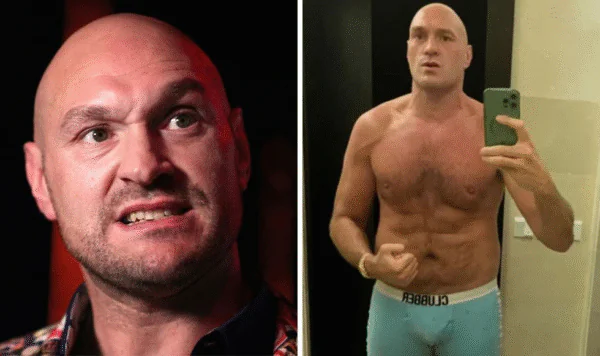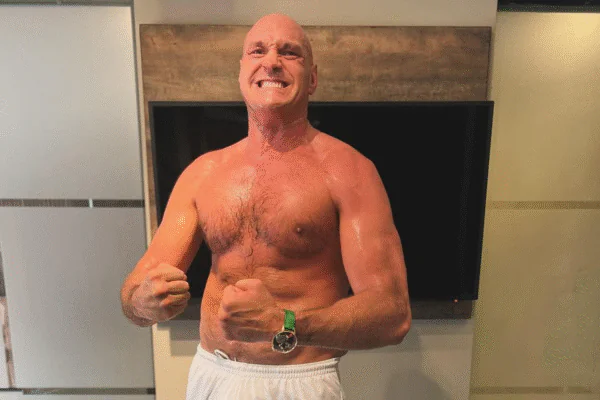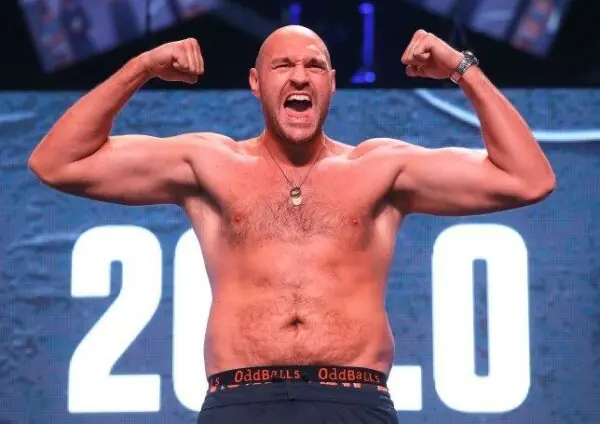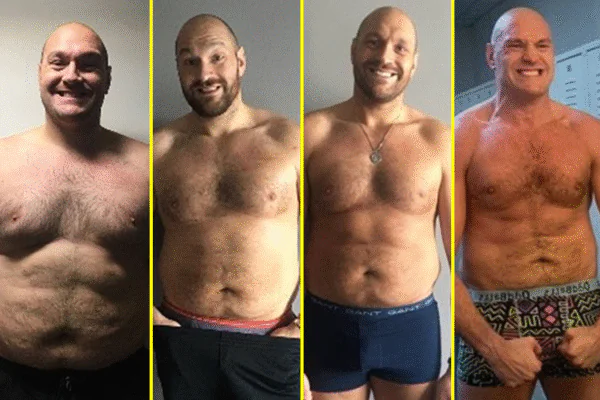Tyson Fury: Based on NeemTime research
Biography / Personal Details / Who is Tyson Fury
Tyson Fury is a British professional boxer known for his charismatic personality and exceptional skills in the heavyweight division.
Born on August 12, 1988, in Manchester, England, Fury has become one of the most prominent figures in modern boxing.
He is often referred to by his nickname “The Gypsy King,” a nod to his Irish Traveller heritage.
Fury stands at 6 feet 9 inches tall, giving him a significant height advantage over many opponents in the ring.
Aside from boxing, he is also known for his outspoken nature and advocacy for mental health awareness.
Fury has won multiple world heavyweight titles, including the WBC and The Ring magazine championships.
His unique combination of size, agility, and boxing IQ has earned him respect from fans and critics alike.
Tyson Fury has a large social media presence where he shares his boxing journey and personal life.
Despite ups and downs in his career, including battles with mental health, Fury has repeatedly demonstrated resilience and determination.
Outside of boxing, he is a devout Christian and often speaks about his faith in interviews.
Background / Childhood / Early Life Highlights of Tyson Fury
Tyson Fury was raised in a large family as one of 12 siblings in a tight-knit Irish Traveller community in Wythenshawe, Manchester.
From a young age, he was exposed to boxing through his father, who was also a professional boxer.
His early life was marked by a strong connection to Traveller traditions and culture.
Fury showed athletic promise as a child but faced challenges balancing school and his passion for boxing.
He started training seriously in boxing during his teenage years, inspired by his family’s involvement in the sport.
Tyson experienced bouts of bullying at school due to his size and background, which fueled his competitive drive.
Despite limited resources, his family supported his boxing ambitions, recognizing his talent early on.
Fury’s amateur career included winning the ABA super-heavyweight title in 2008.
His early training was often intense and self-driven, laying the foundation for his professional career.
Tyson’s upbringing instilled a sense of resilience and pride that has shaped his public persona and boxing style.
Career / Other Work / Current Life Highlights of Tyson Fury
Tyson Fury turned professional in 2008 and quickly rose through the heavyweight ranks with an undefeated streak.
He won the unified WBA, IBF, WBO, and IBO heavyweight titles by defeating Wladimir Klitschko in 2015 in a major upset.
After his victory over Klitschko, Fury faced personal struggles, including mental health battles and substance abuse, which led to a temporary hiatus.
He made a remarkable comeback in 2018, regaining the WBC heavyweight title by defeating Deontay Wilder in a 2018 draw and a 2020 rematch win.
Tyson Fury is also known for his entertaining ring entrances and witty interviews, enhancing his popularity beyond boxing.
In addition to boxing, he has participated in charity work, focusing on mental health and helping disadvantaged communities.
Fury is involved in promoting boxing events and mentoring younger fighters, contributing to the sport’s growth.
Recently, he has been preparing for future title defenses while balancing his personal and family life.
Fury’s career highlights include multiple “Fight of the Year” performances that showcased his resilience and tactical skill.
He continues to be a prominent figure in heavyweight boxing, with fans eagerly following his every move inside and outside the ring.
Dating History / Family Members / Personal Life of Tyson Fury
Tyson Fury married Paris Smith in 2012, and the couple has several children together, forming a close-knit family.
He is known for prioritizing his family life, often sharing moments with his wife and children on social media.
Fury has spoken openly about the support his wife provided during his struggles with mental health and addiction.
His father, John Fury, is a former professional boxer and a significant influence on Tyson’s career and life philosophy.
Tyson is very close to his siblings, many of whom are also involved in boxing or sports.
Despite his fame, Fury maintains strong ties to his Traveller roots and frequently emphasizes the importance of his heritage.
His personal life has seen ups and downs, but he credits his faith and family as pillars that keep him grounded.
Tyson is active in mental health advocacy, using his platform to raise awareness and encourage others to seek help.
He often mentions the challenge of balancing the demands of a high-profile sports career with being a dedicated husband and father.
Outside the ring, Fury enjoys fishing, spending time outdoors, and engaging in community events linked to his cultural background.
Tyson Fury Shirtless

Tyson Fury Shirtless 5

Tyson Fury Shirtless 4

Tyson Fury Shirtless 3

Tyson Fury Shirtless 2

Tyson Fury Shirtless
Height / How to Get Body Like Tyson Fury
Tyson Fury stands an imposing 6 feet 9 inches tall, making him one of the tallest heavyweights in boxing history.
Achieving a physique like Tyson Fury requires a combination of natural height, rigorous training, and proper nutrition tailored to a heavyweight athlete.
Fury’s body combines both size and agility, developed through a mix of endurance cardio, strength training, and boxing-specific drills.
His workout routine often includes running, sparring sessions, resistance training, and mobility exercises to maintain speed despite his large frame.
Fury focuses heavily on functional strength exercises that improve punching power without sacrificing flexibility or stamina.
Nutrition plays a crucial role, with a diet rich in proteins, complex carbohydrates, and healthy fats to fuel his intense training and recovery.
Mental discipline and consistent sleep patterns are emphasized in his regimen to optimize muscle growth and overall health.
To replicate Fury’s body, one must balance bulking phases with conditioning, ensuring the added muscle mass does not reduce agility.
Flexibility and core strength workouts, such as yoga and Pilates, are also part of his training to prevent injuries and maintain balance.
Ultimately, developing a body like Tyson Fury’s requires years of dedicated professional training combined with genetic advantages.
Interview Quotes of Tyson Fury (where/when)
In a 2015 interview with Sky Sports, Fury stated, “I’m not just here to be a champion, I’m here to be the greatest.”
During a 2020 press conference before his rematch with Deontay Wilder, he said, “I’ve battled the biggest demons inside and out of the ring.”
On the Joe Rogan Experience podcast in 2019, Fury shared, “Mental health is as important as physical health; I want to break the stigma.”
In a 2018 interview with BBC Sport, he mentioned, “My family kept me grounded when I felt I was losing control.”
Fury told The Guardian in 2017, “Boxing saved my life when I was at my lowest point.”
After winning the WBC title in 2020, he said in an ESPN interview, “I’m proof that no matter how hard life hits, you can always come back stronger.”
Fury expressed in a 2019 ITV interview, “I fight for my people, my family, and my heritage every time I step into the ring.”
During a 2021 HBO interview, he remarked, “Respect in boxing is earned through heart and hard work, not just wins.”
In an emotional 2016 interview with Sky News, he admitted, “There were times I thought I wouldn’t make it, but faith pulled me through.”
At a 2018 press event, Fury stated, “Confidence and belief are my greatest weapons inside the ring.”
TV / Movie Quotes of Tyson Fury (where/when)
In the documentary “Tyson Fury: The Gypsy King” (2020), he said, “I want to inspire people that no matter your struggles, you can conquer them.”
During his appearance on “Good Morning Britain” in 2018, Fury mentioned, “The mental fight is sometimes harder than the physical one.”
In the BBC series “Boxing: Beyond the Glory,” Fury reflected, “Boxing is about more than just punching; it’s about heart and soul.”
At the 2019 ESPY Awards, Fury stated, “Champion means more than a title; it means resilience and courage.”
In his Netflix documentary “Tyson Fury: The Journey” (2017), he said, “Every setback is a setup for a comeback.”
On “The Ellen DeGeneres Show” in 2020, Fury joked, “I’m just a big friendly giant with a mean left hook.”
In an interview for Showtime Boxing, he said, “To be the best, you have to believe you already are.”
During his feature on “60 Minutes Australia,” Fury stated, “My story is about redemption, not just sport.”
On the show “Piers Morgan Uncensored” in 2021, he shared, “I’ve learned that vulnerability is strength, not weakness.”
In the BBC’s “Sports Personality of the Year” special, Fury remarked, “Legacy is built not just on wins, but how you handle losses.”
Controversies / Gossip / Scandals of Tyson Fury
Tyson Fury’s career has been marked by controversy, including a suspension in 2016 due to missed drug tests, which he later resolved.
His outspoken comments about religion and politics have sometimes sparked public debate and media attention.
Fury has faced criticism for his fluctuating weight, with some opponents and critics questioning his fitness during certain fights.
His candid discussions about mental health struggles were initially met with skepticism by some in the boxing community.
In 2018, Fury made headlines for announcing his retirement amid personal and legal challenges, only to return to the ring later.
Fury has been involved in public feuds with fellow boxers like Deontay Wilder, generating intense media coverage before their fights.
Some of his comments on social media have been viewed as controversial, leading to temporary backlash from fans and journalists.
He has occasionally been criticized for his brash personality and trash talk, which some see as unprofessional.
Tyson’s ties to the Irish Traveller community have sometimes been the subject of stereotyping and controversy in the press.
Despite controversies, Fury has remained a beloved figure to many fans for his openness, resilience, and willingness to confront personal demons publicly.
Lesser Known Unknown Facts Trivia of Tyson Fury
Tyson Fury’s great-grandfather was also a bare-knuckle boxer, continuing a family legacy that spans several generations.
Despite his imposing size, Fury is known for his surprising agility and speed, which many consider unusual for a heavyweight of his stature.
Fury briefly considered a career in professional wrestling before fully committing to boxing.
He once worked as a bouncer in Manchester nightclubs during his early career days to support his family.
Tyson has publicly shared that he suffers from bipolar disorder, making him one of the few elite athletes to openly discuss mental health struggles.
He is an avid dog lover and frequently shares pictures of his pets on social media.
Fury is a passionate fisherman and often spends his downtime fishing in rivers and lakes across the UK.
He has a deep interest in music and has expressed admiration for artists like Bob Marley and Eminem.
Tyson once took part in a charity football match alongside celebrities to raise funds for children’s hospitals.
He has a tattoo on his chest dedicated to his mother, symbolizing his close relationship with his family.
10 Most Commonly Frequently Discussed Questions/Topics with Answers on Tyson Fury
Q: Why did Tyson Fury take such a long break from boxing after beating Wladimir Klitschko?
A: Many fans explain that Fury struggled with mental health issues, substance abuse, and personal problems, leading to a hiatus for recovery and self-care.
Q: How does Tyson Fury’s fighting style differ from other heavyweights?
A: Users often mention Fury’s excellent footwork, defensive skills, and ability to switch between orthodox and southpaw stances, making him very versatile.
Q: What makes Tyson Fury’s comeback in 2018 so remarkable?
A: Fans highlight his battle with depression and addiction, plus his return to peak form to defeat top contenders and reclaim titles, showing incredible resilience.
Q: Is Tyson Fury considered one of the greatest heavyweight boxers?
A: The consensus is yes, due to his skills, undefeated record against top competition, and ability to overcome adversity both in and out of the ring.
Q: What are Tyson Fury’s mental health contributions outside boxing?
A: Fans discussions praise his openness about bipolar disorder, encouraging mental health awareness and breaking stigma in sports.
Q: How big is Tyson Fury’s reach and how does it benefit him?
A: Users note his reach of 85 inches allows him to control distance effectively and keep opponents at bay with long jabs.
Q: Has Tyson Fury faced any serious controversies?
A: Fans conversations acknowledge his missed drug tests and brash public statements but emphasize his growth and accountability since then.
Q: What’s Tyson Fury’s training regimen like?
A: People mention his combination of strength training, cardio, boxing drills, and focus on mental preparation as key to his success.
Q: How does Tyson Fury’s personality impact his boxing career?
A: Many appreciate his charisma and humor, which make him a fan favorite and help with psychological warfare against opponents.
Q: What are Tyson Fury’s plans for the future?
A: Fans speculate he will continue defending his titles while possibly transitioning to a mentoring or promotional role in boxing after retirement.